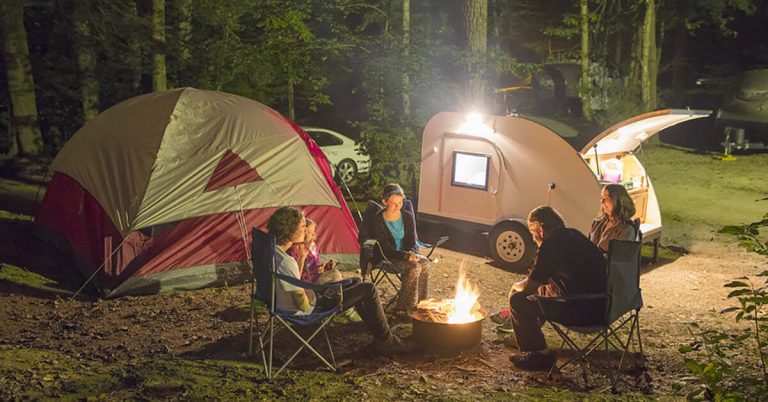There is nothing quite like spending a few nights under the stars. You wake up to breakfast cooked over the fire, then spend your days hiking, fishing, or just relaxing. You experience the deep peace that only nature can bring.
Then you come home—and you’ve got a packed car full of stuff to put away.
It’s awfully tempting to just stick it in the garage and take a nap, but if you want to keep your gear in good shape, take some time to store it properly.
How to Store Outdoor Camping Gear?
While it will take some time and elbow grease to put all the gear away – your effort will be rewarded when your gear is organized and in excellent condition for your next trip. Of course, everyone will have different amounts of equipment to store, but use these tips as a general guideline.
1. Clean and Dry Your Gear
This step applies to your tent, backpack, sleeping bag, cookware, and any other gear you have that’s made of any kind of pliable material.
If it smells or has visible dirt on it, clean it using gentle soap and water. You want to be wiping your tent and backpack down; not fully submerging them in water and scrubbing.
The next step—and this is the most important step—is to make sure that your gear is 100 percent dry before storing it. If there’s any moisture it will create mildew and mold.
If you can, pitch your tent in a dry spot, such as an extra bedroom or back porch, to dry. You can also hang or drape your gear
2. Take Care of Electronics
Prevent corrosion by removing the batteries in your flashlights and other electronics before storing them. Put the batteries in a plastic bag and store the electronics and batteries together in the same box or bag. Also remember to keep track of portable chargers.
3. Be Careful About Storage Conditions
Even if your gear is completely dry, mildew can still be a problem if you store your gear in humid conditions. In most cases, that rules out basements, attics, and garages.
You also want to be sure to pack your gear in such a way that allows ventilation. Sleeping bags should not be stored in the bags they come in, nor should tents. Rather, pack them a bit more loosely in either cardboard boxes or large cotton sacks. Sleeping bags can also be stored flat underneath beds.
Storage Units for Camping Gear
If you find that you’re running out of room to store all your gear, or if you don’t have a garage, you might want to consider self storage as a possible solution. You can rent a climate-controlled unit as small as 25 square feet or so—or up to the size of a garage. Our units can be rented on a month-by-month basis and are always clean and well-lit. Check out our Self Storage Calculator and find a perfect unit near you!


